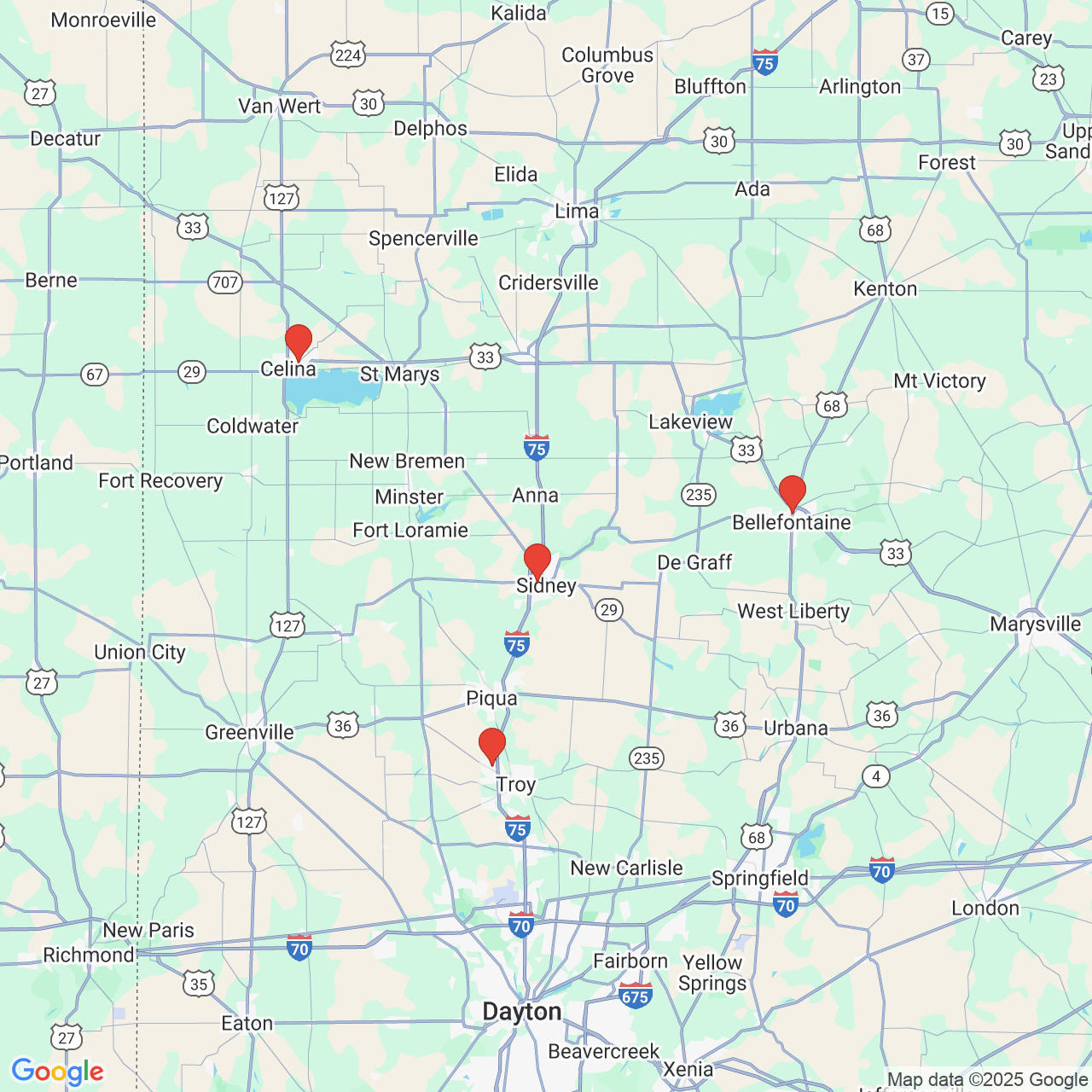Diabetic Retinopathy Treatment Sidney
Protect Your Vision With Board-Certified Care
- Vitrectomies and advanced laser treatments
- Many insurances accepted
- Four convenient locations across West-Central Ohio
Proven Treatment Options for Diabetic Retinopathy in Sidney and Beyond

Focal Laser Treatment (Photocoagulation)
Focal laser surgery slows the leakage by shrinking the abnormal blood vessels. This treatment can be completed in one session and can reduce the progression of macular edema. Additional treatments will be needed to stabilize your vision.

Scatter Laser Treatment (Panretinal Photocoagulation)
This laser surgery shrinks the abnormal blood vessels through targeted laser burns, focusing on the periphery of the retina rather than the macula. It is effective in stopping leakage but usually takes two or more sessions to complete.

Vitrectomy
This procedure is recommended for those suffering from severe vision loss due to diabetic retinopathy. A surgeon will remove blood, fluid, and scar tissue from the gel in the center of your eye (vitreous). Over time, the eye's natural fluid will replace the blood that made your vision cloudy.
Affordable Diabetic Retinopathy Care in Sidney, OH
We don’t want cost to stand in the way of protecting your vision. At Ohio Vision, we make treatment as accessible as possible with flexible payment solutions:
Insurance-friendly practice — We accept many plans and will file claims on your behalf to simplify the process.
Financing options available — Flexible payment plans help reduce out-of-pocket costs for patients without full coverage.
Guidance from our staff — Our team can answer questions about coverage and financing so you can focus on your care with confidence.
“Eye care has never felt this safe.” Our Experienced Doctors Come Highly Recommended
"Dr. Johnson has revolutionized this practice, with his new technology and thorough exams, eye care has never felt this safe and accommodating.
Completely pleased with staff and doctors. Dr. Schemmel works hand in hand with Dr. Johnson and his calculations and exams are spot on. Highly recommend!!!!"
- Siera, 5-Star Review
The Stages of Diabetic Retinopathy
People might not show any symptoms in the earliest stages of diabetic retinopathy. Diabetics should schedule yearly eye exams even if they have no change in their vision and their blood sugar levels are controlled.
Call our doctors right away if you experience blurriness, haziness, or a sudden change of vision.
We'll Help You Manage the Condition Lifestyle Adjustments Can Make a World of Difference
While our treatments can help slow the process of NDR, PDR, and macular edema, they will not cure diabetic retinopathy. Certain lifestyle adjustments have to be made to maintain your vision.
Managing Your Blood Sugar
Managing your blood sugar levels and continuing medications as directed can maintain good ocular health and overall wellness.
Lifestyle Changes
Your doctor may recommend a healthy diet, daily exercise, quitting smoking, and other wellness plans to improve your health and manage your diabetes.
Monitor Vision Changes
Stay cognizant of any vision changes to help detect diabetic retinopathy in its earliest stages. Annual eye exams can help you get ahead of this condition and maintain your vision.
“Professional and very knowledgeable.” Why Sidney Chooses Our Skilled Doctors
Very professional and very knowledgeable about your situation!!
View On GoogleDr. Johnson is the best!! He took excellent care of a family member…You can trust him with your vision, he won't let you down!!
View On Google







